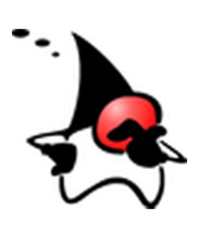| Java Turns 22 Today |
| Written by Jamie Mercer |
| Tuesday, 23 May 2017 |
|
Can you believe that Java was first publicly launched 22 years ago? Few could have. foreseen that the language would go on to be such an influential part of computing and still remain relevant over two decades later. This is especially so when you take into consideration the humble beginnings of Java and its original intentions. In 1990, Sun Microsystems employees were growing tired with C and C++. Engineer Patrick Naughton was frustrated at Sun’s APIs and was given the opportunity to do something about it; he would create an alternative language as part of The Stealth Project. There were five requirements from this experiment. The new language had to:
The Stealth Project was soon renamed the Green Project and Naughton was joined by Mike Sheridan and James Gosling. With the team formed, they started working on developing new technologies that would be suitable for the next generation of smart appliances. The first attempts looked at combining C and Mesa, producing an object-oriented environment in C++, and Gosling even tried creating a new form of C++ which he called C++ ++ -- which is a bit of a mouthful, to say the least. C++ would be cast aside as it required too much memory and had a tendency to lead to developer errors thanks to its complexity due largely to developers having to manually manage the system memory. The new language, named Oak after a tree that grew outside of Gosling’s office, was eventually completed after 18 months and by the fall of 1992 the team was ready to showcase their work in a private demonstration. The team had created a personal digital assistant called Star 7 (stylised as *7) which also included a helpful assistant called Duke; the first sighting of the future Java mascot. Only four or five models are understood to exist. In this video James Gosling demos one:
Commenting on this launch, Naughton said: "In 18 months, we did the equivalent of what 75-people organizations at Sun took three years to do. An operating system, a language, a toolkit, an interface, a new hardware platform, three custom chips ... using new risky technology at every turn. We pulled out all our teeth and put them in each others' mouths." Sun Microsystems decided to split The Green Project into a subsidiary and renamed it FirstPerson, tasking the group to focus on the TV market. Time Warner contracted FirstPerson to create a series of interactive set-top boxes. The pitch involved the creation of a set-top box platform which cable bosses thought put too much power in the hands of the TV viewers so the idea was scrapped and FirstPerson lost their bid to SGI. Unable to secure another deal (a deal with The 3DO Company also fell through), FirstPerson was eventually rolled back into Sun. In June 1994, after several days of brainstorming and meetings, the team decided to target the emerging World Wide Web platform. In it, they saw all of the interactive media qualities that inspired them to work with set-top boxes and felt that with graphical web browsers such as Mosaic they could continue their interest there instead. Trouble would come after a legal challenge from Oak Technology resulting in the need for a rebrand for the Oak language. James Gosling described this process as “wild craziness” during which “most of the words in the dictionary were yelled out”. Close contenders included suggestions such as Silk and DNA but eventually the team settled on Java. There are disagreements as to who came up with the name Java. Some say the group came up with 10 suggested names and picked Java as the best of the bunch once they were approved by the legal department. Others, such as Kim Polese, then the Oak Product Manager, claim to have deliberately suggested the name because it reflected the essence of the technology as it was “lively, dynamic and fun”. With its new name, Java 1.0a2 was formally revealed at the SunWorld Conference in San Francisco on 23 May 1995. At the same time, Netscape also announced that it would license Java for its latest browser. John Gage, Sun Microsystem’s Director of Science would also announce the launch of the HotJava Browser. This infographic has a timeline that covers much of Java's history prior to Oracle's acquisition of Sun in 2010 and then looks at the Java version history, even including JDK 9, which now is probably not going to include Project Jigsaw, see No Vote For Java's Project Jigsaw Module System
Source: https://www.pearsonfrank.com/ Since 1995, Java has infiltrated all manner of our everyday interactions. Banks often use Java in Point of Sale devices, sending customer data to and from necessary locations to make payments. Mobile phones use Java for Android apps as well as and the Android OS is also based on it. Video games also make use of the language, with the massively successful Minecraft built by Mojang a prime example. Put simply, the world would be a different place without Java, and for that we raise a glass to the language formerly known as Oak. Happy Birthday, Java - we can’t wait to see what the next 22 years have in store.
Related ArticlesNo Vote For Java's Project Jigsaw Module System James Gosling At JavaOne (2012)
To be informed about new articles on I Programmer, sign up for our weekly newsletter, subscribe to the RSS feed and follow us on Twitter, Facebook or Linkedin.
Comments
or email your comment to: comments@i-programmer.info |
| Last Updated ( Tuesday, 23 May 2017 ) |



